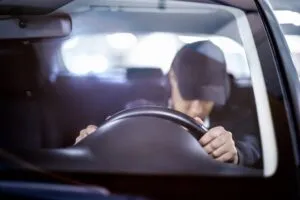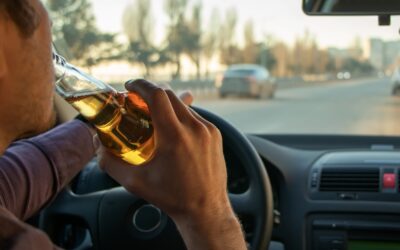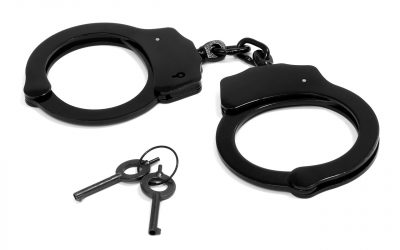
“How long after a DUI accident may you lose your license?” It’s a common question after a confusing and scary arrest. One of the biggest worries for many people is the potential loss of driving privileges. There are two general answers: You may lose your license 30 days after your arrest if the DMV suspends it or on the day of your sentencing if you are convicted of DUI.
However, several factors may influence the duration of a license suspension after a DUI arrest, including the state you live in, your Blood Alcohol Concentration (BAC) level at the time of arrest, and whether it’s your first offense. Consulting with a qualified Los Angeles DUI attorney is always recommended to get the most accurate and up-to-date information applicable to your specific case.
Things You Should Know After a DUI Arrest
A DUI arrest can be a stressful and overwhelming experience. Here are five important things to keep in mind as you navigate this challenging situation:
- Don’t Delay, Take Action. In California, you typically have ten days to request a hearing to contest the automatic suspension imposed by the Department of Driver Safety (DDS) after a DUI arrest. Acting quickly can help preserve your driving privileges while you address the legal issues.
- Know Your Rights and Protections. Throughout the process, you have the right to legal counsel. An experienced DUI attorney can advise you of your rights and ensure they are protected. They can also explore options to minimize the impact on your driving privileges, including potentially reducing the suspension period or obtaining a restricted license for essential driving needs.
- The Repercussions Extend Beyond Driving. What are the consequences someone can face if they have a conviction for DUI? A DUI conviction can significantly increase your car insurance rates. It can also make it more difficult to find employment, particularly in jobs that require driving. In some cases, a DUI on your record could even affect professional licenses you may hold.
- First Offense Doesn’t Mean Permanent Loss. While a license suspension is likely after a first-time DUI offense in California, it’s not always a permanent revocation. There are steps you can take to get your license back, such as completing court-ordered programs, paying fines and fees, and installing an Ignition Interlock Device (IID) in your vehicle. An IID is a device that prevents your car from starting if your BAC is above a pre-set limit.
Depending on the circumstances of your arrest, there could be further penalties beyond license suspension. These might include jail time, additional fines, or mandatory alcohol education or treatment programs. A DUI lawyer can help you understand the potential consequences you face and explore options for mitigating them.
Understanding License Suspension After a DUI Arrest
A DUI arrest can have a significant impact on your driving privileges. In California, there are two main types of license suspensions you might face: Administrative suspension vs. court suspension.
- Administrative Suspension. That is an automatic suspension imposed by the Department of Driver Safety (DDS) entirely separate from any court proceedings. It’s primarily based on your BAC level at the time of arrest or your refusal to take a chemical test, like a breathalyzer.
- Court-Triggered Suspension. The court system determines that suspension as part of the criminal charges against you for driving under the influence.
It’s important to understand that these are two separate processes, and the potential consequences of each can differ. It’s always best to consult with a DUI attorney to get a clearer picture of the potential consequences applicable to your specific situation.
How to Get Your License Back After a DUI
A DUI arrest can significantly disrupt your daily routine, and getting your license back is likely a top priority. Here’s a breakdown of the general steps involved in California for regaining your driving privileges after a first-time DUI offense:
Complete Court-Ordered Requirements
The court might order you to complete specific programs as part of your sentence. These could include DUI school, alcohol counseling sessions, or community service. Fulfilling these requirements is essential before you can move forward with license reinstatement.
Resolve Financial Obligations
You’ll likely be responsible for paying various fines and fees associated with the DUI conviction. These might include court fines, administrative fees imposed by the Department of Driver Safety (DDS), and any additional penalties determined by the court. Settling these financial obligations is typically a prerequisite for license reinstatement.
Driver’s License Reinstatement with the DDS
Once you’ve completed court-ordered programs and resolved any outstanding financial obligations, you can initiate the process of reinstating your driver’s license with the DDS. The DDS may have specific forms and procedures you need to follow. Consulting with the DDS or a DUI attorney can ensure you navigate this process correctly.
Ignition Interlock Device (IID) Installation
Depending on the specifics of your case, the court might require you to install an Ignition Interlock Device (IID) on your vehicle. That device prevents your car from starting if your Blood Alcohol Content (BAC) is above a pre-set limit. Installation and maintenance of the IID typically come at your own expense.
Remember, these are general steps, and the specific requirements for license reinstatement can vary depending on your individual situation. Consulting with an experienced DUI attorney is highly recommended. They can advise you on the most appropriate course of action for your case and help you navigate the reinstatement process effectively.
Talk to an Experienced DUI Lawyer at No Cost Today
A DUI arrest can be a stressful and overwhelming experience. You may be facing license suspension, potential jail time, financial penalties, and even difficulty finding employment. The good news is that you don’t have to navigate this alone. Many experienced DUI attorneys offer free consultations where you can discuss your case and explore your legal options.
A lawyer can work with you to explore ways to minimize the impact of the DUI on your driving privileges and overall situation. That might involve negotiating a plea bargain, challenging the administrative suspension, or developing a strong defense strategy for your court case. Contact a Los Angeles DUI Lawyer today to get a free consultation.






